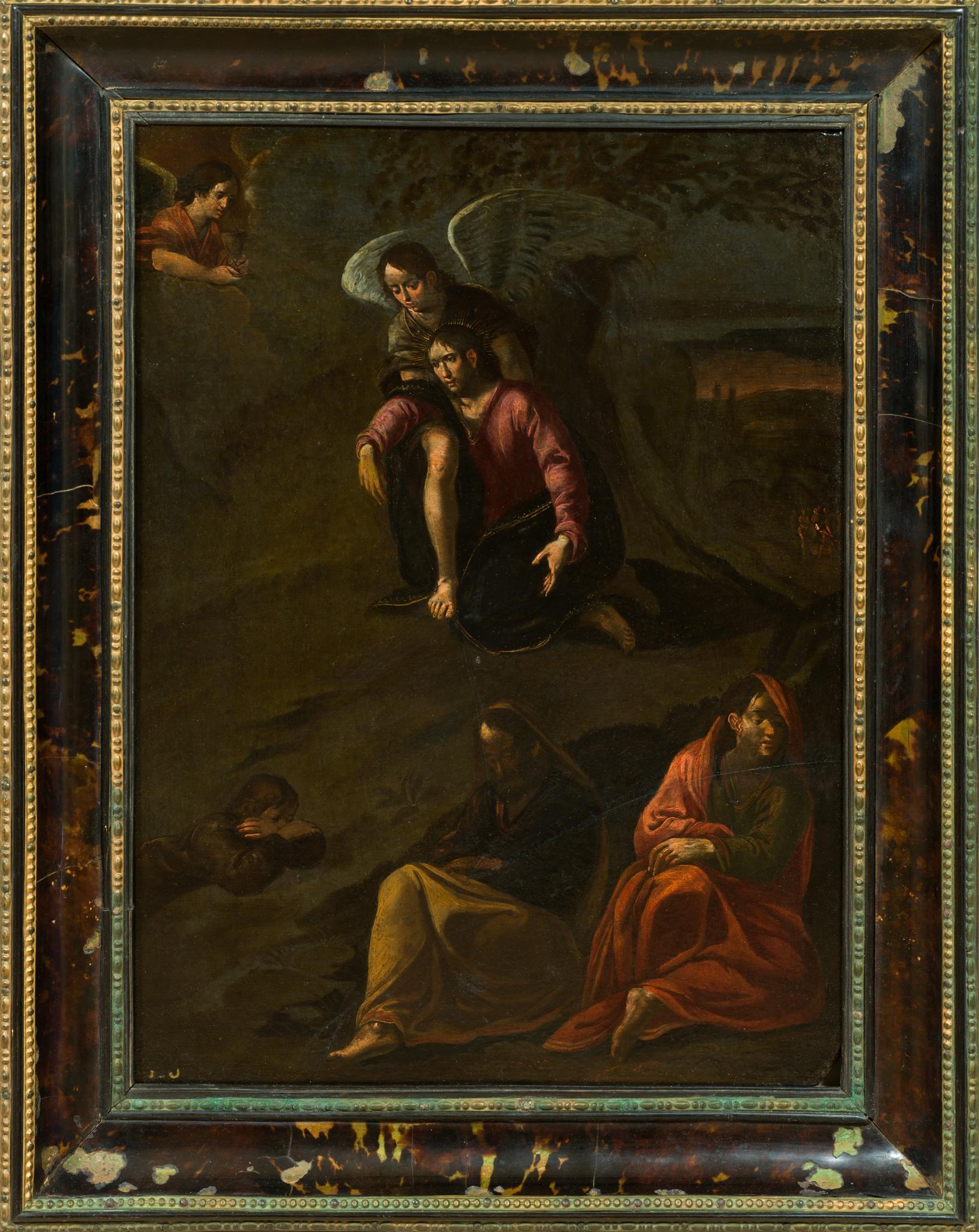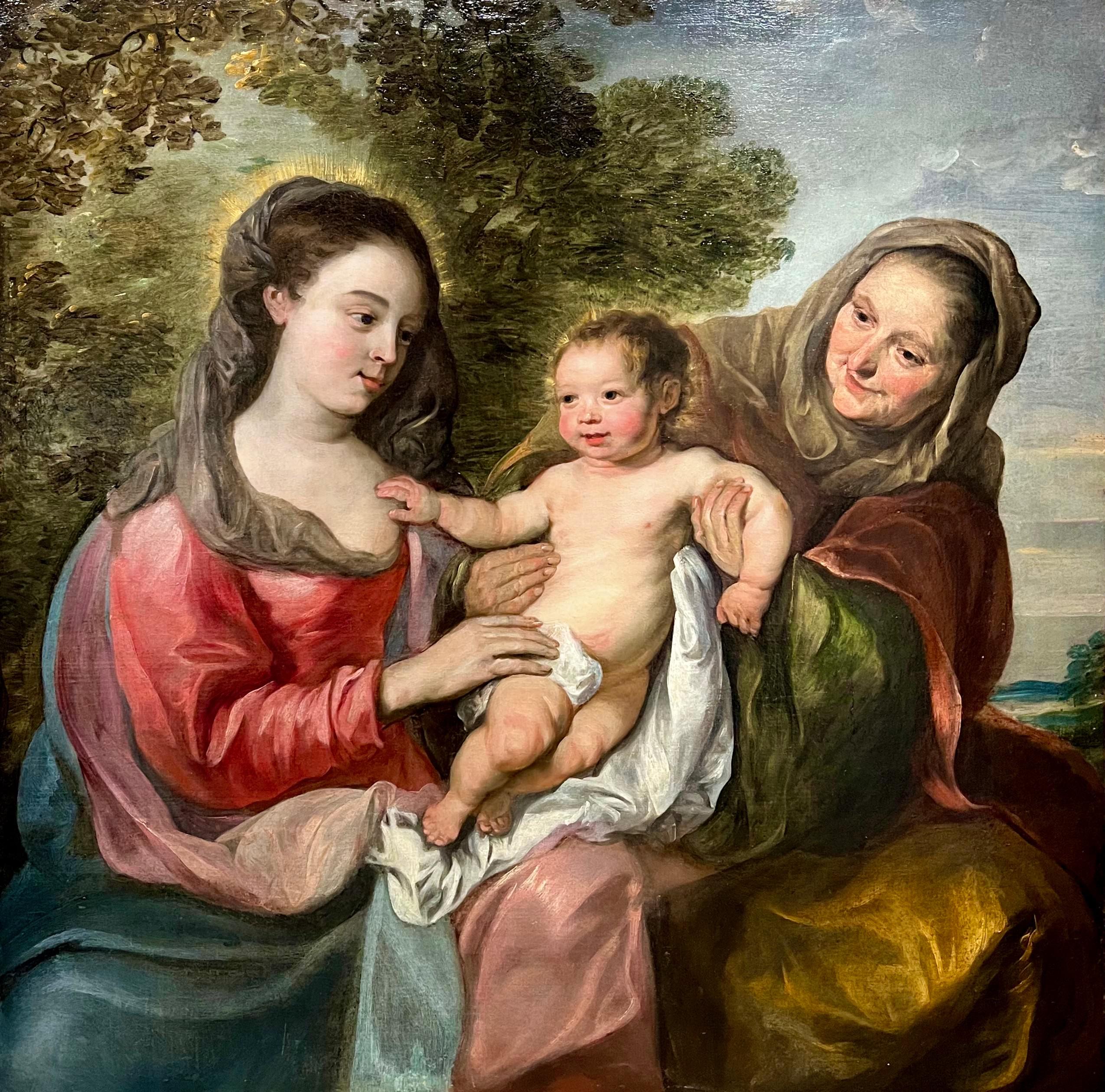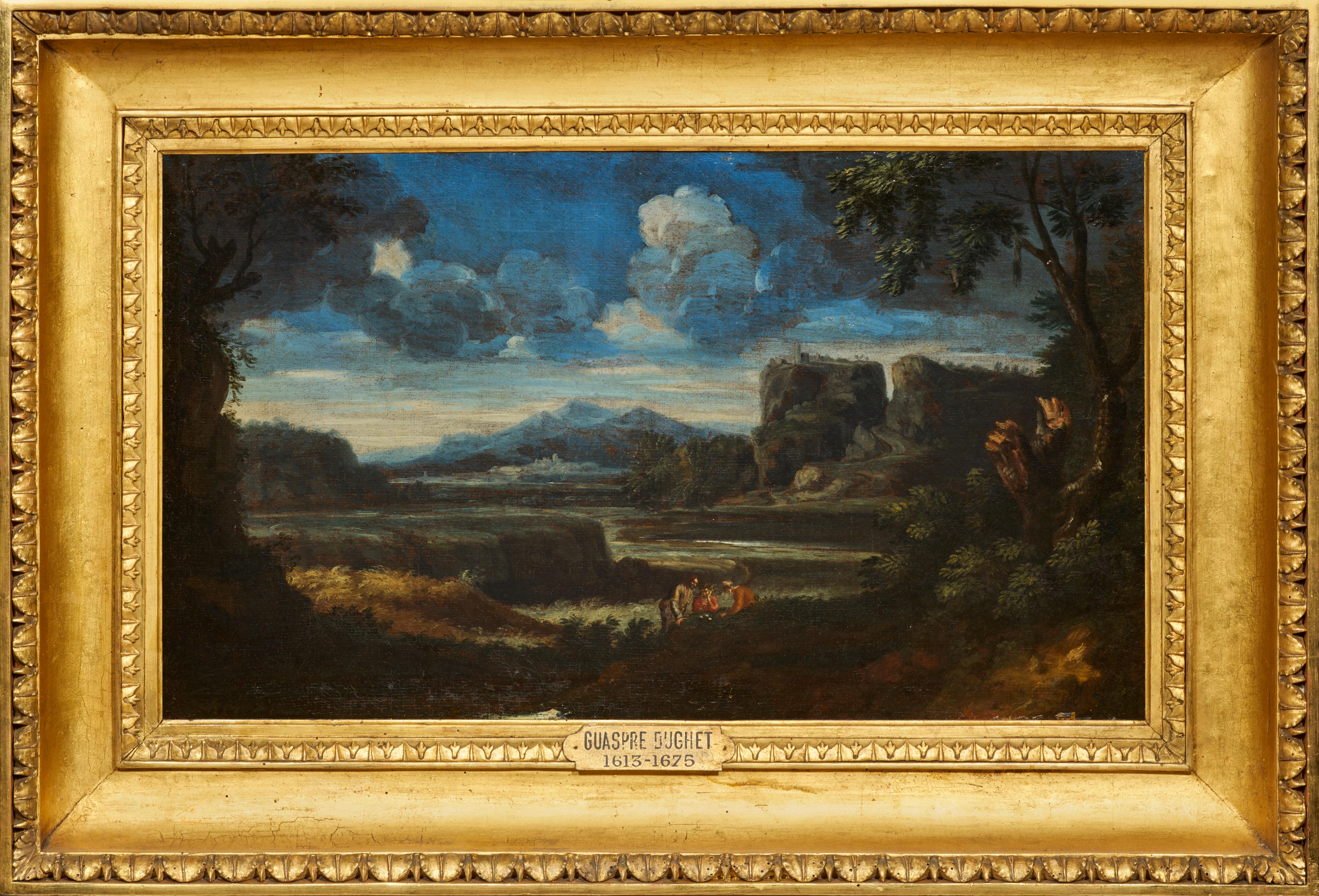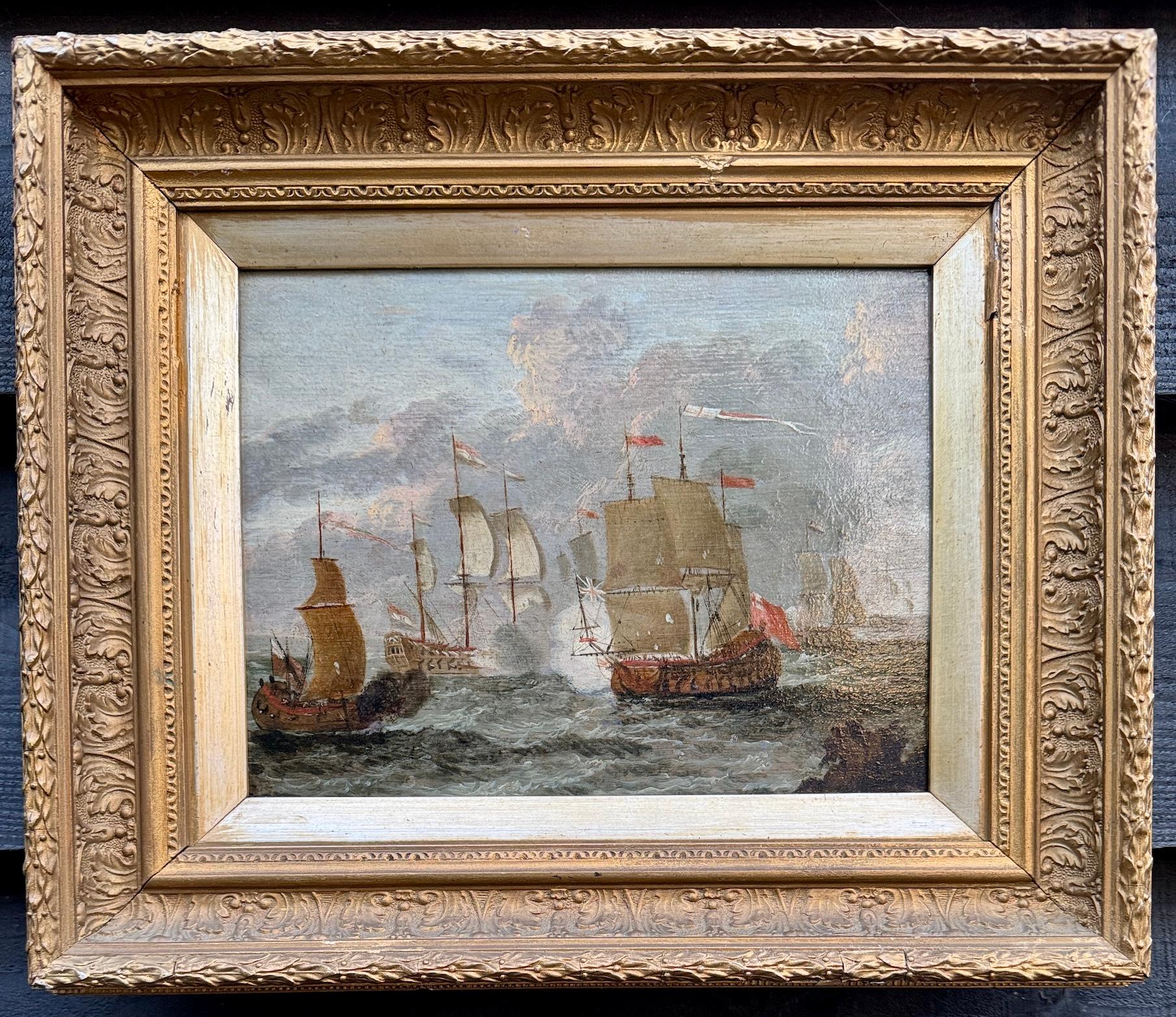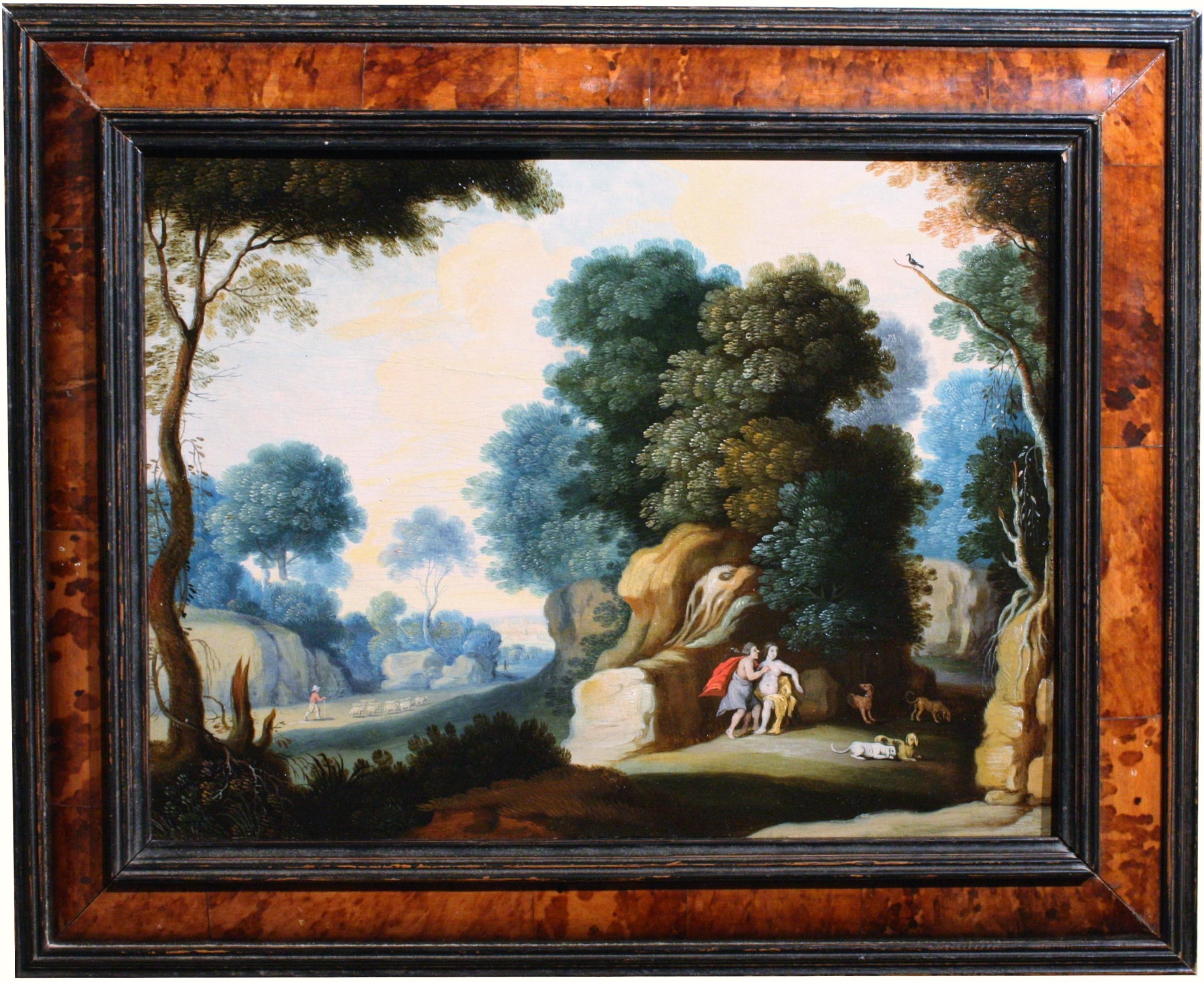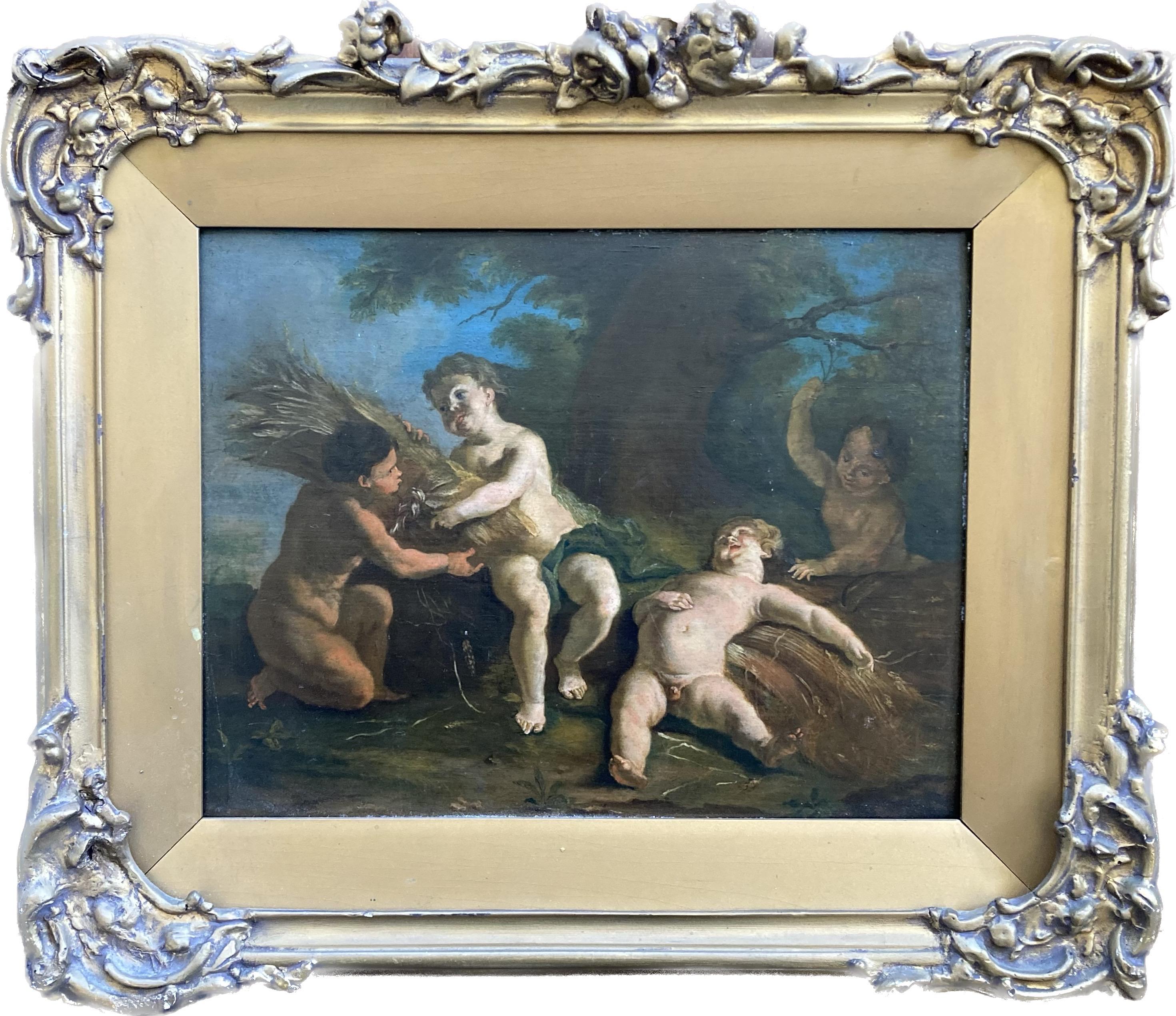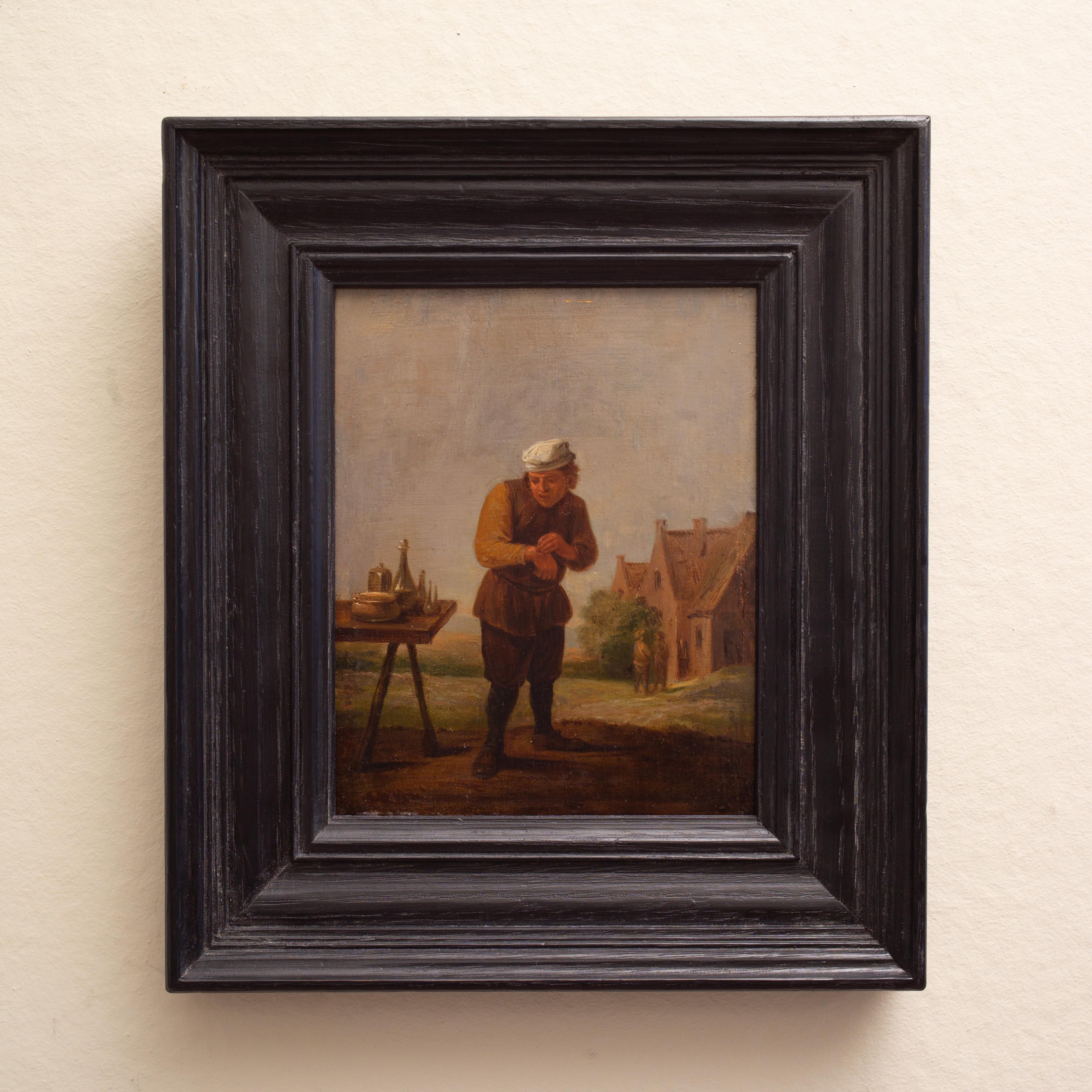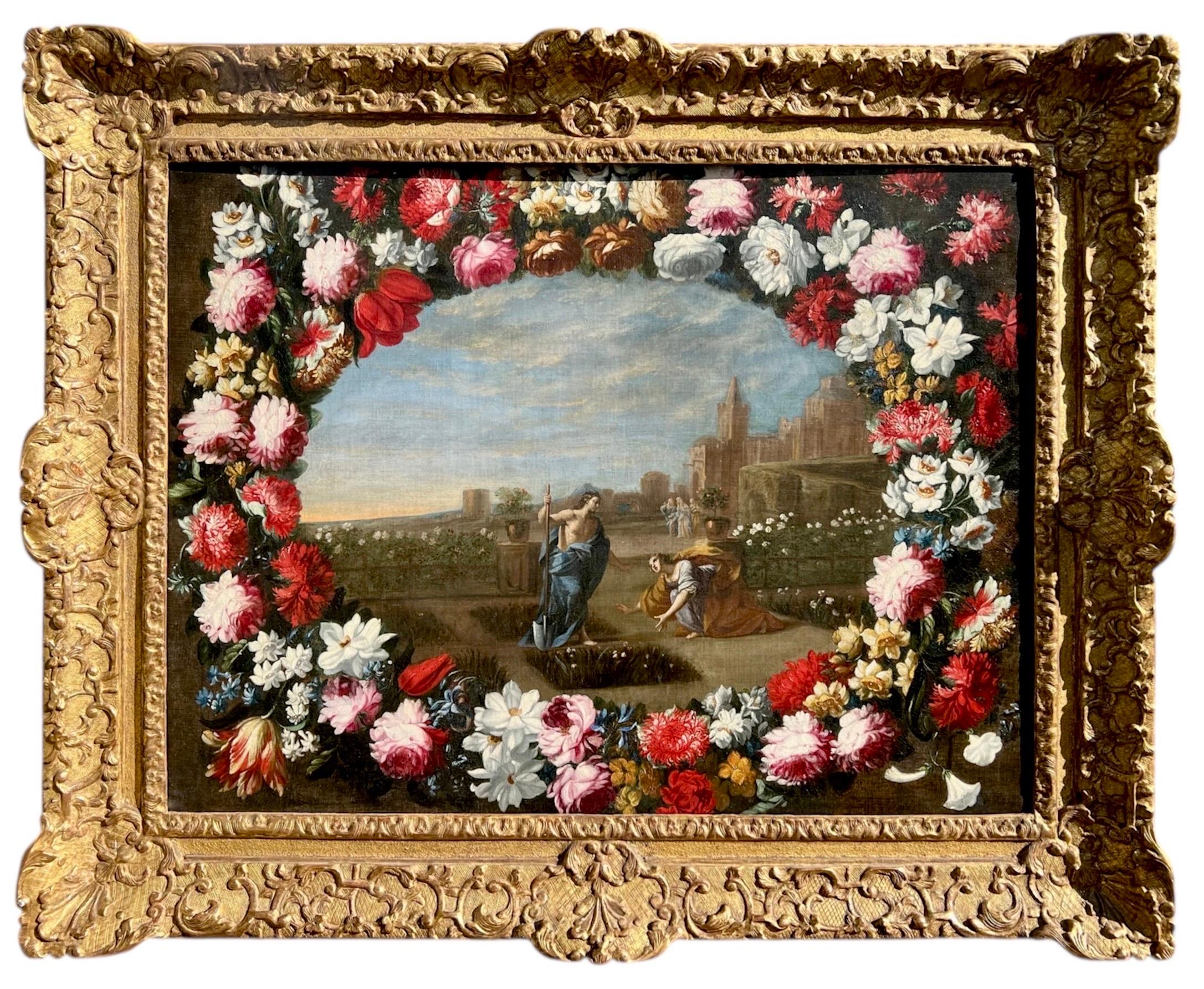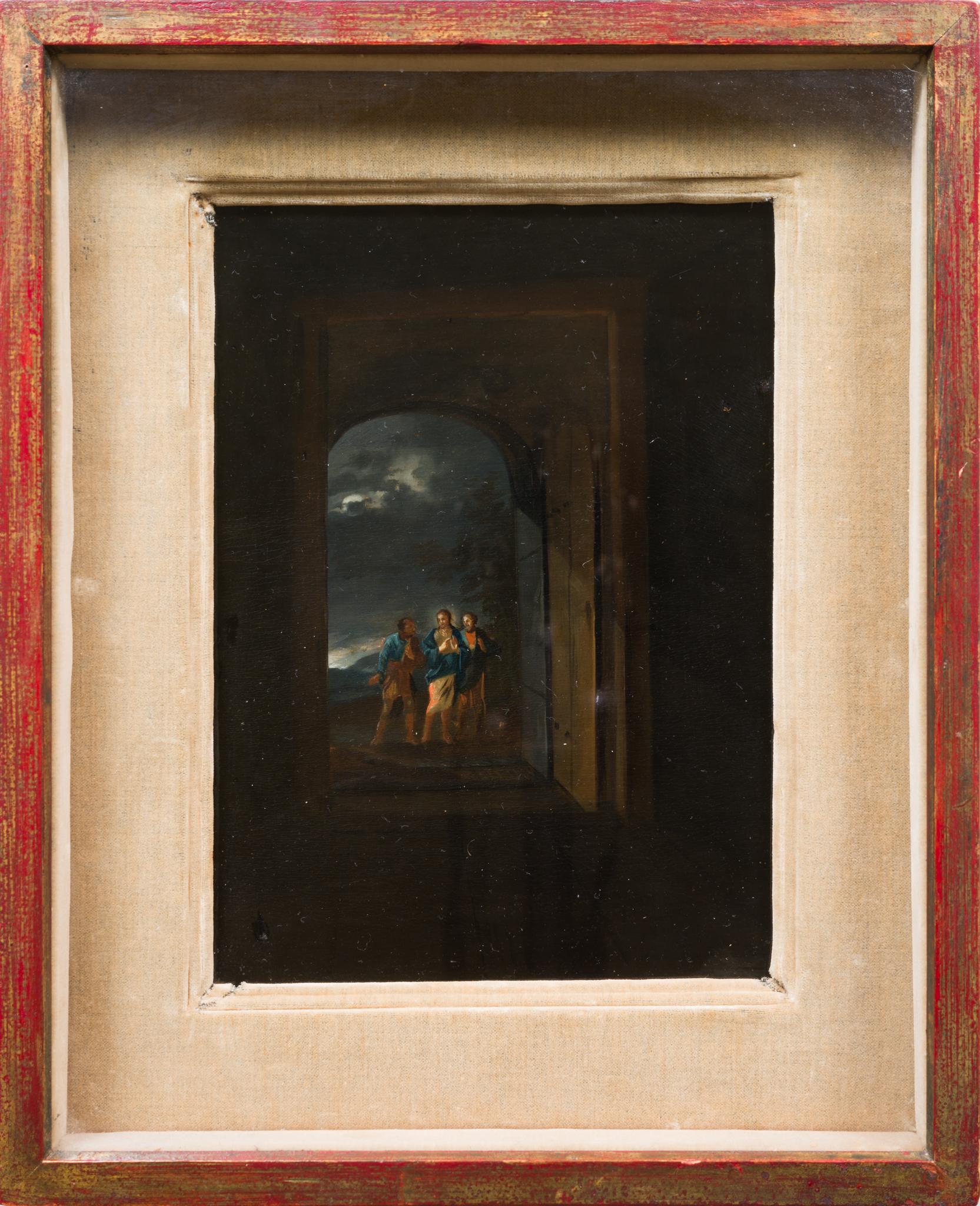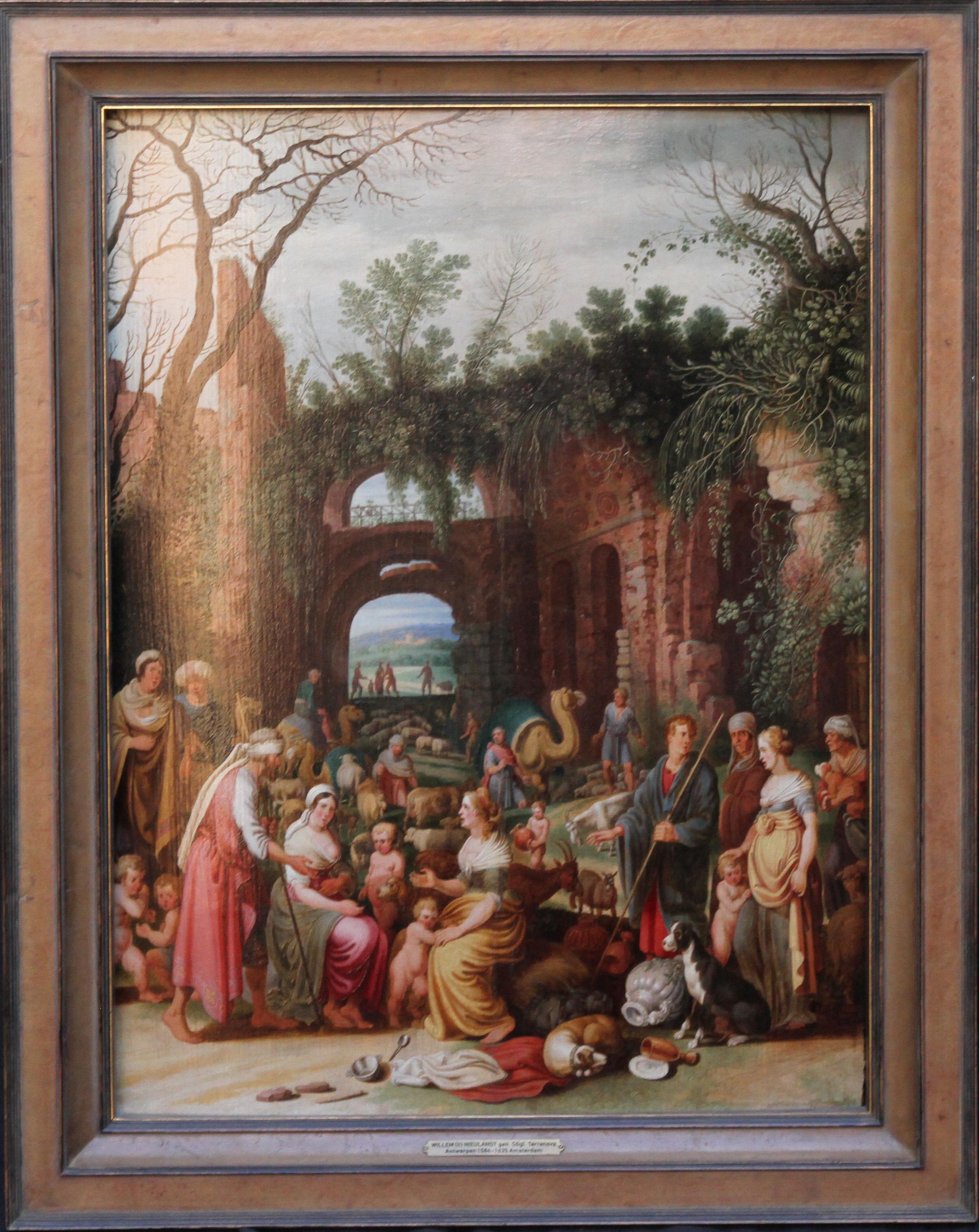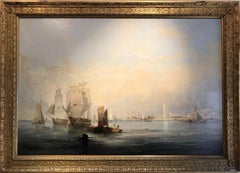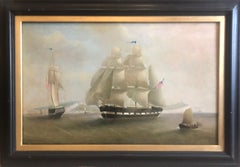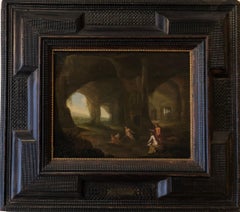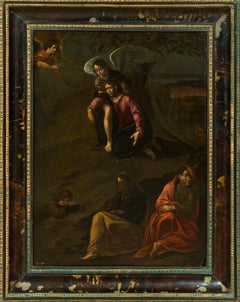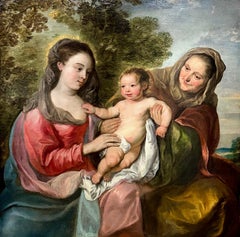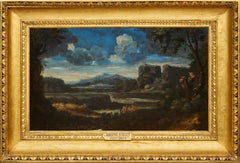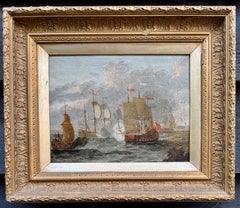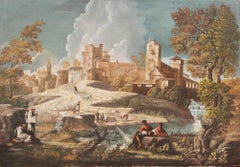
Monumental 17th Century Landscape Painting with Figures in an Arcadian setting
View Similar Items
Want more images or videos?
Request additional images or videos from the seller
1 of 9
UnknownMonumental 17th Century Landscape Painting with Figures in an Arcadian setting1700s
1700s
Price:$24,616.11
$27,351.23List Price
About the Item
- Creation Year:1700s
- Dimensions:Height: 47 in (119.38 cm)Width: 67 in (170.18 cm)
- Medium:
- Movement & Style:
- Period:
- Condition:
- Gallery Location:London, GB
- Reference Number:1stDibs: LU67334497731
About the Seller
5.0
Platinum Seller
Premium sellers with a 4.7+ rating and 24-hour response times
Established in 1990
1stDibs seller since 2017
42 sales on 1stDibs
Authenticity Guarantee
In the unlikely event there’s an issue with an item’s authenticity, contact us within 1 year for a full refund. DetailsMoney-Back Guarantee
If your item is not as described, is damaged in transit, or does not arrive, contact us within 7 days for a full refund. Details24-Hour Cancellation
You have a 24-hour grace period in which to reconsider your purchase, with no questions asked.Vetted Professional Sellers
Our world-class sellers must adhere to strict standards for service and quality, maintaining the integrity of our listings.Price-Match Guarantee
If you find that a seller listed the same item for a lower price elsewhere, we’ll match it.Trusted Global Delivery
Our best-in-class carrier network provides specialized shipping options worldwide, including custom delivery.More From This Seller
View AllGrand 19th Century English Marine Painting in Stunning Light
By John Wilson Ewbank
Located in London, GB
John Wilson Ewbank (1799 - 1847)
Shipping in the Harbour, South Shields
Oil on canvas
39.5 x 58 inches unframed
47.75 x 66.5 inches framed
Provenance:
Christie's October 2002; Lot 11.
Fine Art Society;
Private Collection
This marvellous up to scale Ewbank is full of light and warmth and almost certainly his greatest work of the sort rarely - if ever - seen on the market.
John W. Ewbank (4 May 1799–28 November 1847), was an English-born landscape and marine painter largely operational from Scotland.
The Humber river is a large tidal estuary on the east coast of Northern England.
Life
Ewbank was born at Darlington on 4 May 1799, the son of Michael Ewbank, an innkeeper. He was adopted as a child by a wealthy uncle who lived at Wycliffe, on the banks of the River Tees, in the North Riding of Yorkshire. Intended for the Roman Catholic priesthood, he was sent to Ushaw College, from which he absconded.
In 1813 Ewbank was apprenticed to Thomas Coulson, an ornamental painter in Newcastle. In around 1816 he moved with Coulson to Edinburgh, where he had some lessons with Alexander Nasmyth. He found work both as a painter and a teacher. He was nominated in 1830 one of the foundation members of the Royal Scottish Academy.
In 1833 he is listed as living at 7 Union Street on the eastern fringe of the New Town in Edinburgh.
Works
His sketches from nature were especially admired, and a series of 51 drawings of Edinburgh by him were engraved by W. H. Lizars for James Browne's Picturesque Views of Edinburgh (1825). He also made a reputation with cabinet pictures of banks of rivers, coast scenes, and marine subjects.
As an illustrator he illustrated some early editions of Scott's Waverley Novels and one edition of Gilbert White...
Category
19th Century Old Masters Figurative Paintings
Materials
Oil
$199,664
Free Shipping
18th Century Neoclassical Oil Painting of the Trojan War: Briseis & Achilles
By James Thornhill
Located in London, GB
James Thornhill (1674-1735)
Oil on canvas
12 x 14 inches;
16 ½ x 18 ½ in. Inc. frame
The subject matter and inclusion of herms on both sides shows the influence of Louis...
Category
Early 18th Century Old Masters Figurative Paintings
Materials
Canvas, Oil
A Beautiful and Large Marine - A Ship in Two Positions Off Dover
By William John Huggins
Located in London, GB
William John Huggins (1781-1845)
A Ship in Two Positions Off Dover
oil on canvas
Unsigned
33 x 45 inches, inc. frame
William John Huggins, of wh...
Category
19th Century Old Masters Figurative Paintings
Materials
Oil
17th Century Classical Oil Painting - Diana With Her Attendants in a Grotto
By Abraham van Cuylenborch
Located in London, GB
Abraham van CUYLENBROCH (1620-1658)
Diana With Her Attendants in a Grotto
1651
signed
oil on panel
12.2 in x 15.7 inches, inc. frame;
31 x 40 cm
Provenance:
Sale of Sotheby's Lo...
Category
17th Century Old Masters Figurative Paintings
Materials
Oil
17th Century Old Master Religious Oil painting - Rest on the Flight into Egypt
By Pier Francesco Mola
Located in London, GB
Attributed to Pier Francesco MOLA, called Il TICINESE (1612-1666)
Rest on the Flight into Egypt
oil on canvas
25.5 x 27 inches including ...
Category
Mid-17th Century Baroque Figurative Paintings
Materials
Oil
Serene Seago Landscape Oil Painting of Reclining Figure Reading by a Riverbank
By Edward Seago
Located in London, GB
Edward SEAGO (1910-1974, British)
Seated Figure Reading by a River
Oil on canvas
Stamped signature on reverse
Framed 18 ½ x 22 ¾ inches
Provenance: Private Estate, Maryland
A beaut...
Category
Mid-20th Century Impressionist Landscape Paintings
Materials
Oil
You May Also Like
Christ Supported by an Angel in the Garden of Gethsemane, On Slate
Located in Stockholm, SE
This evocative Veronese School painting captures the moment in the Garden of Gethsemane when Christ, overwhelmed with sorrow, prays to God before his arrest and crucifixion. Supporte...
Category
Early 17th Century Old Masters Figurative Paintings
Materials
Slate
Large 17th century religious family painting - Mary with Christ and Anna
Located in Aartselaar, BE
17th century Old Master painting depicting the Infant Christ with Mary and St. Anne attributed to Nicolas de Liemaker
The artist of the present work wonderfully captured the loving gaze of Maria, looking in awe at her child. One can sense the tenderness and love in her eyes. The eyes of Christ appears to be filled with wisdom and love and a finely painted aura crowns his and his mother's heads. St. Anne, Mary's mother, gently holds the infant whilst gazing adoringly at him. The painting is not only a beautiful depiction of Christ and his mother and grandmother, but also a sweet image of the tender bond between a mother's and their children. The vibrant and soft colours of the fabric create a soft cocoon around the figures and seem to further emphasis the beauty and importance of the depicted scenery and its protagonists.
Nicolaas de Liemaecker (also spelled as Liemaker or Liemackere) was a Flemish painter born in Ghent in 1601. He was also known under the name Nicolaas Roose. His father was Jacobus de Liemaecker, a painter upon glass. Nicolaas is reported to have been trained by his father and Gaspard de Crayer II (1), an apprenticeship with Otto Van Veen has also been suggested. In 1624 he worked at the Court of the Bishop of Paderborn and for Ferdinand of Bavaria. He later returned to his native city, where he focused on religious and historical paintings. He was a very accomplished and celebrated artist who attained a high rank in his profession. He witnessed the baptisms of Pieter and Janne-Marie Van Hulle...
Category
17th Century Old Masters Figurative Paintings
Materials
Canvas, Oil
Italian Landscape with Jack Players, a painting by Gaspard Dughet (1615 - 1675)
By Gaspard Dughet
Located in PARIS, FR
Here Gaspard Dughet offers us an idyllic vision of the Roman countryside. The stages follow one another in a perfectly structured composition, revealing here a lake, there travellers walking along, gradually leading our eye to the blue horizon. But behind its classical composition, this landscape is particularly interesting because of three anthropomorphic details that the artist has hidden, opening the way to a radically different interpretation...
1. Gaspard Dughet, a landscape artist in the light of Poussin
Gaspard Dughet was born on June 4th, 1615 in Rome where his father, of French origin, was a pastry cook. He was probably named Gaspard in honour of his godfather Baron Gaspard de Morant, who was, or may have been, his father's employer. His older sister Jeanne married the painter Nicolas Poussin (1594 - 1655) on September 1st, 1630. The young Gaspard was apprenticed with his brother-in-law at the beginning of 1631, which led his entourage to name him Gaspard Poussin. The first preserved works of the painter date from the years 1633-1634 and were painted in Poussin’s studio.
Around 1635, Gaspard Dughet became emancipated and began to frequent the Bamboccianti circle. In 1636, he became friends with the painter Jean Miel (1599 - 1656), but also with Pier Francesco Mola (1612 - 1666) and Pietro da Cortona (1596 - 1669).
This was also the time of his first trips throughout Italy. The painter, although of French origin, appears never to have visited France. In 1646 he settled permanently in Rome. A recognized painter with a solid book of orders, he remained faithful to landscape painting throughout his life, alternating between cabinet paintings and large decorative commissions, using both oil and fresco.
Nailed to his bed by rheumatic fever at the age of 58, he died on May 25, 1675.
2. Discovering an idealized landscape
Beyond a relatively dark foreground that takes us into the landscape, we discover a vast bluish horizon: a plateau surrounded by deep ravines advances to the right, overhanging an expanse of water that sparkles below. A road winds through a mountainous mass as if leading us to the fortress that crowns it; another town appears in the distance at the foot of three conical mountains.
The composition is rigorous, mineral, and structured by geometric volumes. The various stages in the landscape lead one to the next attracting the eye towards the horizon located in the middle of the canvas. The general impression is that of a welcoming and serene nature.
In many places the paint layer has shrunk, or become transparent, revealing the dark red preparation with which the canvas was covered and accentuating the contrasts.
Human presence is limited to three jack players, leaning against a mound in the foreground. Their long garments, which may evoke Roman togas, contribute to the timelessness of the scene.
Close examination of the canvas reveals two other travellers on the path winding between the rocks. Made tiny by the distance, their introduction in the middle register, typical of Dughet's art, lengthens the perspective.
While it is difficult to date the work of a painter who devoted his entire life to the representation of landscapes, it is certain that this painting is a work from his later years. The trees that occupied the foreground of his youthful compositions have been relegated to the sides, a stretch of water separates us from the arid mountains counterbalanced by two trees represented on the opposite bank. The introduction of this stretch of water in the middle of the landscape betrays the influence of the Bolognese and in particular of the Dominiquin (1581 - 1641)
A number of similarities with a drawing in the British Museum might suggest a date around 1656-1657, since, according to Marie-Nicole Boisclair , it has been compared with the Prado's Landscape with the Repentant Magdalene, painted at that period.
3. Three amazing anthropomorphic details
While some late Renaissance landscapes offer a radical double reading, allowing one to see both a face or a human body behind the representation of a landscape, it seems interesting to us to hypothesize that Gaspard Dughet had fun here by slipping in a few details that, taken in isolation, evoke human or animal figures.
We will give three examples, looking closely at a cloud, the trunk of a broken tree and the top of a cliff.
The main cloud could thus evoke a Christ-like face or that of an antique god...
Category
1650s Old Masters Landscape Paintings
Materials
Oil
18th century English marine Battle scene between Dutch and British warships
By Francis Swaine
Located in Woodbury, CT
Attributed to Francis Swaine (British, 1725–1782)
Naval Engagement at Sea, 18th century
Oil on panel
In this evocative seascape, a cluster of ships—flags raised, cannons fired—conve...
Category
1760s Old Masters Landscape Paintings
Materials
Oil, Wood Panel
Landscape with figures, workshop of Paul Bril, Italian school 17th Century
By Paul Bril
Located in PARIS, FR
Idyllic landscape with myhological story of Cephalus and Procris
Early 17th century Italian school
Workshop Of Paul Bril (Antwerp, 1554 - Roma, 1626)
Oil on poplar panel: H. 28 cm (1...
Category
Early 17th Century Old Masters Landscape Paintings
Materials
Poplar, Oil
Old master painting of Cherubs cavorting in a woodland setting
By Jean-Honoré Fragonard
Located in Harkstead, GB
A charming image of cherubs cavorting with sheaths of wheat in a woodland setting.
Follower of Jean-Honoré Fragonard
Cherubs cavorting before a tree
Oil on panel
10¾ x 14 inches exc...
Category
Early 19th Century Old Masters Landscape Paintings
Materials
Oil, Wood Panel
Recently Viewed
View AllMore Ways To Browse
Raymond Graber
Rbg Art
Richard Macdonald Golf
Rms Queen Elizabeth
Robert Colquhoun
Robert Kingsley
Robert Von Neumann
Ron Hitchins
Rossi Antiques
Saint Rita
Salvador Dali Les Vitraux
Salvador Dali Mary
Salvador Dali Rhinoceros
Salvador Dali Signed Prints Elephant
Salvador Dali The Doctor
Sam Barber
Sarah Hughes
Sarah Shaw
